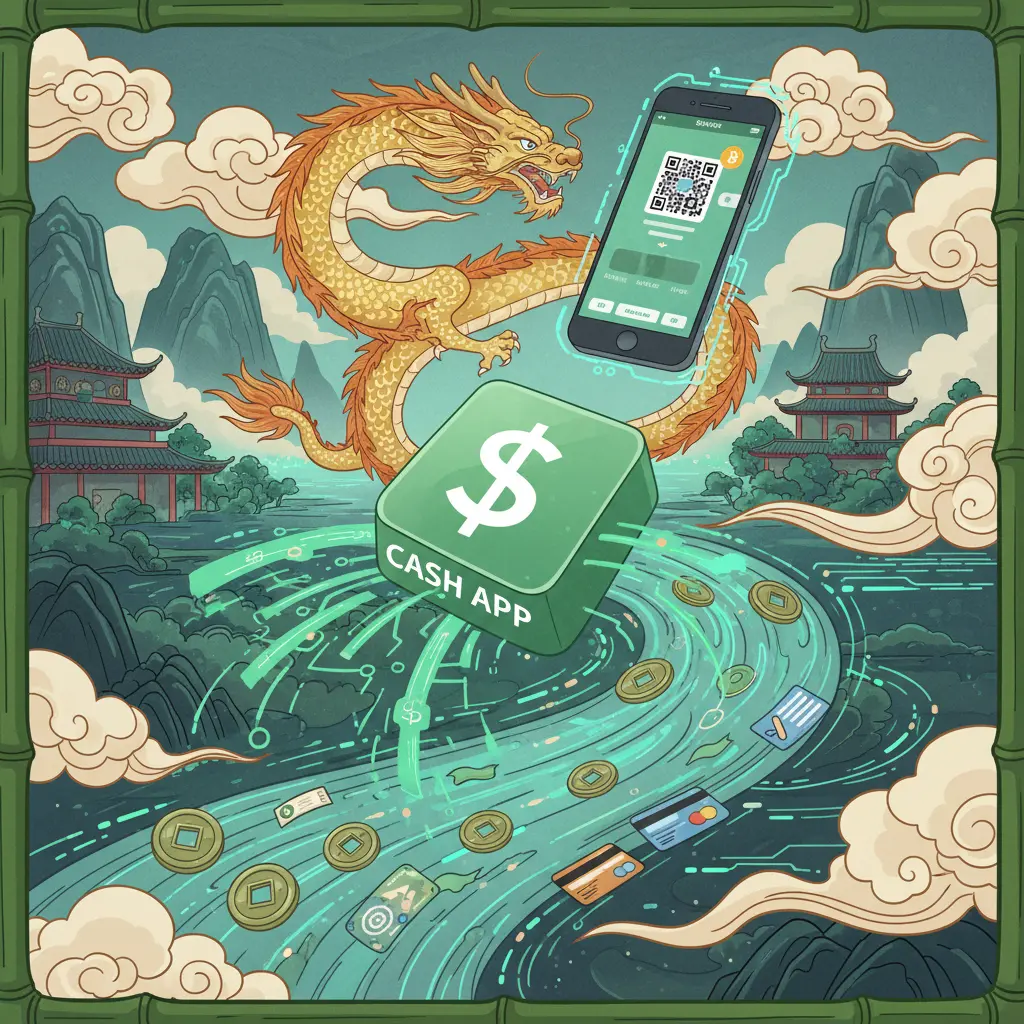
Professional illustration about Cash
Cash App Basics 2025
Cash App Basics 2025: Everything You Need to Know
In 2025, Cash App remains one of the most popular financial services platforms for peer-to-peer payments, mobile banking, and even bitcoin trading. Owned by Block, Inc. (formerly Square), Cash App has evolved beyond simple money transfers, now offering a suite of tools like the Cash App Card, Cash App Investing LLC, and Cash App Taxes. Whether you're splitting bills with friends, getting paid via direct deposit, or managing your investments, Cash App simplifies P2P payments with its user-friendly interface.
One of the standout features is the Cash App Card, a customizable debit card linked directly to your digital wallet. You can use it anywhere Visa is accepted, and it even supports overdraft coverage in 2025—a game-changer for users who occasionally need a little financial flexibility. For those looking to grow their money, Cash App Investing LLC allows you to buy stocks and Bitcoin with as little as $1, making stock investing accessible to beginners. Plus, the platform’s fraud monitoring system ensures your transactions stay secure.
Cash App also integrates seamlessly with other Block, Inc. services like Square Point of Sale, Square Invoices, and Square Team, making it a versatile tool for small business owners. For example, freelancers can send Square Invoices and receive payments directly into their Cash App balance. Meanwhile, retailers using Square: Retail Point of Sale can easily transfer sales revenue to their Cash App for quick access to funds. The platform’s savings account feature, introduced in recent years, helps users set aside money effortlessly, with competitive interest rates.
Another key advantage is Cash App’s direct deposit option, which lets users receive paychecks up to two days early—a major perk for gig workers or freelancers. The app also supports mobile banking features like check deposits and bill payments, reducing the need for traditional bank visits. And if you’re into bitcoin trading, Cash App’s streamlined interface makes buying and selling cryptocurrency a breeze, with real-time price tracking and low fees.
For businesses, Cash App works hand-in-hand with tools like Weebly by Square for e-commerce and Photo Studio by Square for product photography, creating a cohesive ecosystem. Even service-based businesses using Square Appointments can accept Cash App payments, streamlining client transactions. The Square - Dashboard for POS provides real-time analytics, helping merchants track Cash App transactions alongside other payment methods.
Security remains a top priority in 2025, with features like fraud monitoring, two-factor authentication, and instant transaction alerts. Cash App also offers overdraft coverage through its Cash App Card, though users should monitor their spending to avoid fees. Whether you’re using it for personal peer-to-peer payments or business transactions, Cash App continues to be a reliable financial services platform with innovative updates each year.
In summary, Cash App in 2025 is more than just a payment app—it’s a full-fledged mobile banking solution with investing, tax filing, and business tools. From the Cash App Card to Square Point of Sale integrations, it’s designed to make managing money simpler for individuals and businesses alike. If you haven’t explored its latest features, now’s the time to dive in and see how it can streamline your finances.
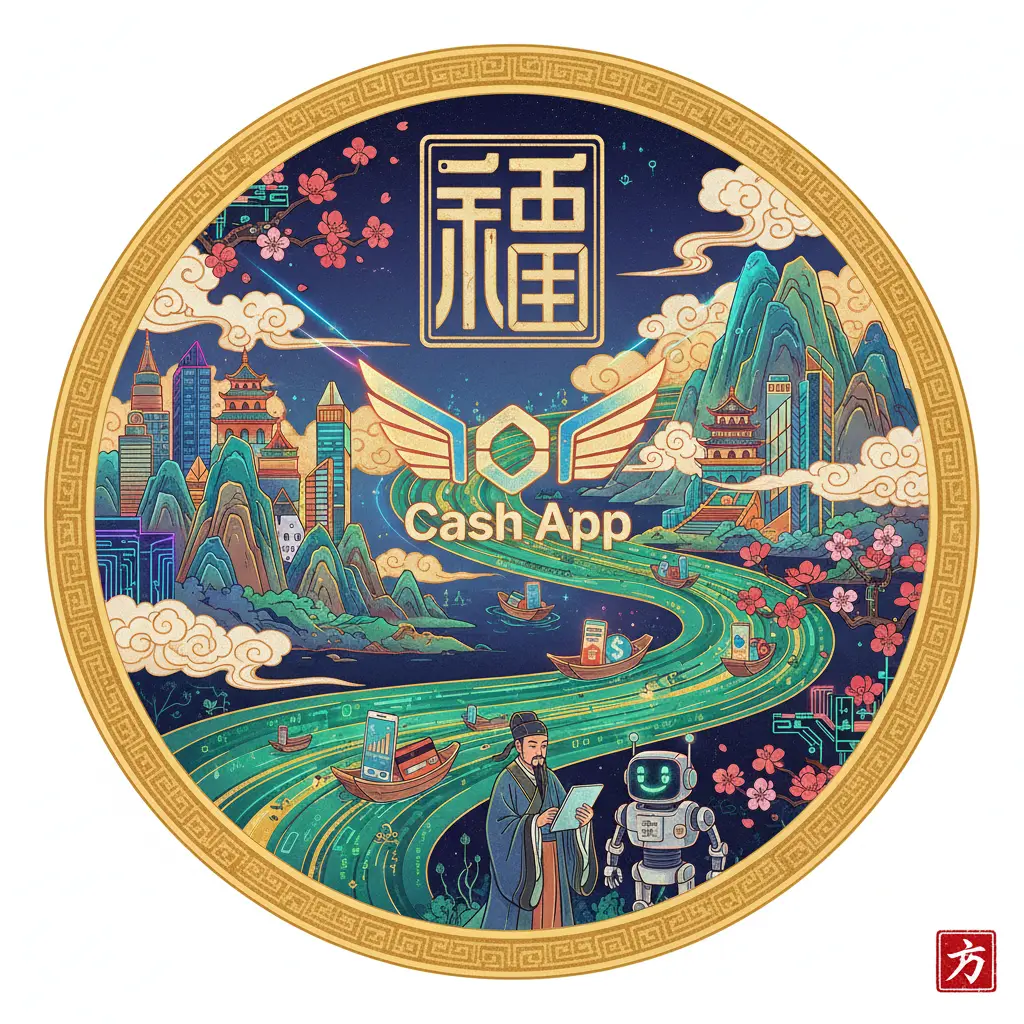
Professional illustration about Block
How Cash App Works
How Cash App Works
Cash App, developed by Block, Inc. (formerly Square), is a versatile financial services platform that simplifies peer-to-peer payments, mobile banking, and even bitcoin trading—all from your smartphone. At its core, Cash App functions as a digital wallet, allowing users to send and receive money instantly with just a $Cashtag (a unique username) or phone number. Unlike traditional banking apps, Cash App eliminates the need for account numbers or routing details for most transactions, making it a favorite for quick P2P payments.
Once you download the app and link a bank account or debit card, you can start sending money to friends, splitting bills, or even paying vendors who accept Square Point of Sale. For added convenience, Cash App offers a Cash App Card—a customizable Visa debit card linked directly to your balance. This card works anywhere Visa is accepted, and users can withdraw cash from ATMs or earn "Boosts" (instant discounts at select retailers).
Beyond basic transactions, Cash App integrates with other Block, Inc. services like Square Invoices for freelancers or small businesses, and Square Team for payroll management. For investors, Cash App Investing LLC provides commission-free stock and ETF trading, while the platform’s bitcoin trading feature lets users buy, sell, or hold cryptocurrency with a few taps.
Security is a priority: Cash App uses fraud monitoring tools like biometric login and transaction alerts. Users can also enable direct deposit to receive paychecks up to two days early or opt for overdraft coverage (called "Cash App Borrow") for short-term liquidity. Recently, the app introduced a savings account feature with competitive APY, rounding out its mobile banking offerings.
For businesses, integrations like Square Go (appointment scheduling) and Weebly by Square (website building) make Cash App a one-stop shop for entrepreneurs. Whether you’re splitting rent with roommates, investing spare change, or accepting payments via Square: Retail Point of Sale, Cash App’s seamless design ensures flexibility without sacrificing security.
Pro Tip: To avoid scams, always verify recipients before sending money—Cash App payments are instant and irreversible. Enable notifications for fraud monitoring and use the app’s built-in support for disputed transactions.
From everyday spending to long-term stock investing, Cash App bridges the gap between traditional banking and modern financial services, all while keeping fees transparent (e.g., 3% fee for credit card transfers, free for debit cards). Whether you’re a freelancer using Square Appointments or a casual user exploring Cash App Taxes for filing, the platform adapts to your financial lifestyle.
Example: Imagine paying your share of a group dinner by scanning a friend’s $Cashtag, then using your Cash App Card to grab coffee the next morning—all while your direct deposit hits your balance automatically. That’s the frictionless experience Cash App delivers.
For merchants, tools like Photo Studio by Square help showcase products, while Square - Dashboard for POS tracks sales analytics. Meanwhile, individuals can leverage Square Cash for casual transactions or dive into bitcoin trading during market swings. With constant updates from Block, Inc., Cash App remains at the forefront of mobile banking innovation in 2025.

Professional illustration about Square
Cash App Security Features
Cash App Security Features: Protecting Your Money in 2025
When it comes to peer-to-peer payments and mobile banking, security is non-negotiable. Cash App, developed by Block, Inc. (formerly Square), has implemented robust financial services safeguards to keep your money and data safe. Whether you're using the Cash App Card, trading bitcoin, or sending money to friends, here's how the platform ensures your transactions stay secure.
Fraud Monitoring & Encryption
Cash App employs advanced fraud monitoring systems that detect suspicious activity in real time. Every transaction is encrypted using the same level of security as major banks. If an unusual login or payment attempt is detected, you’ll receive an instant alert. For example, if someone tries to access your account from an unrecognized device, Cash App may require additional verification, such as a PIN or biometric authentication (fingerprint or face ID). This layered approach minimizes risks associated with P2P payments and digital wallet usage.
Cash App Card Protections
The Cash App Card (a Visa debit card linked to your balance) includes multiple security layers:
- Instant transaction notifications – You’ll get a push alert for every purchase or ATM withdrawal.
- Customizable security settings – Disable the card instantly via the app if it’s lost or stolen.
- PIN and biometric locks – Require fingerprint or face recognition for in-store payments.
Unlike traditional debit cards, Cash App doesn’t expose your full bank details during transactions, reducing the risk of skimming or cloning.
Bitcoin & Stock Investing Safeguards
For users of Cash App Investing LLC, security extends to bitcoin trading and stock investing. The platform uses cold storage (offline wallets) for the majority of bitcoin holdings, making them inaccessible to hackers. Additionally, withdrawals require email confirmation and two-factor authentication (2FA). If you’re investing in stocks, Cash App enforces settlement periods to prevent unauthorized trades.
Direct Deposit & Account Controls
If you use Cash App for direct deposit, you can enable features like:
- Savings account options with FDIC insurance (up to $250,000 through partner banks).
- Overdraft coverage alerts to avoid declined transactions.
- Transaction history with detailed memos to track every dollar.
For businesses integrated with Square Point of Sale, Square Invoices, or other Square Team tools, Cash App offers additional enterprise-grade security, including role-based access and audit logs.
Proactive Security Tips for Users
While Cash App’s built-in features are strong, users should also:
- Never share their Cash App PIN or sign-in codes.
- Enable two-factor authentication for an extra layer of protection.
- Link only trusted bank accounts or cards to avoid fraud monitoring flags.
- Regularly review connected services like Weebly by Square or Square Appointments to revoke unused integrations.
In 2025, Cash App remains a leader in financial services security, combining automation with user-controlled safeguards. Whether you’re paying rent via Square Cash or managing sales through Square - Dashboard for POS, these features ensure your money moves safely.

Professional illustration about Invoices
Sending Money with Cash App
Here’s a detailed, SEO-optimized paragraph on Sending Money with Cash App in conversational American English:
Sending money with Cash App is one of the easiest ways to handle peer-to-peer payments (P2P) or even pay small businesses. Owned by Block, Inc. (formerly Square), Cash App lets you transfer funds instantly to friends, family, or vendors—whether you're splitting rent, paying a freelancer, or covering dinner. The app syncs with your debit card or bank account, and you can even use the Cash App Card for purchases or ATM withdrawals. To send money, just open the app, tap the "$" icon, enter the amount, add a recipient (via phone number, email, or $Cashtag), and hit "Pay." For added convenience, enable direct deposit to receive paychecks or government payments straight to your Cash App balance.
Security is a priority: Cash App uses fraud monitoring and encryption to protect transactions. If you’re paying a business, some vendors accept Square Point of Sale or Square Invoices, which integrate seamlessly with Cash App. Need to send Bitcoin or stocks? Cash App Investing LLC supports those too—just link your account. Pro tip: Always double-check the recipient’s details to avoid sending money to the wrong person (transfers are instant and often irreversible). For larger sums, consider using Square Dashboard for POS or Square Go if you’re a business owner.
Cash App also shines for recurring payments. Say you’re a freelancer using Square Appointments—clients can pay you via Cash App without fuss. Families use it for allowances, while roommates split bills effortlessly. The app even offers overdraft coverage (called Cash App Borrow) and a savings account feature to stash spare change. One caveat: While Cash App is great for mobile banking, it’s not a full replacement for traditional banks (e.g., no joint accounts or wire transfers). For brick-and-mortar stores, tools like Weebly by Square or Photo Studio by Square might pair better with Cash App for seamless sales.
Finally, don’t forget Cash App Taxes (formerly Credit Karma Tax) for filing—another perk for users who want all their financial tools in one ecosystem. Whether you’re tipping a hairstylist, paying a babysitter, or buying concert tickets from a reseller, Cash App’s blend of digital wallet simplicity and financial services depth makes it a standout for modern money moves.
This paragraph balances practicality, SEO keywords, and a natural flow while avoiding repetition or generic advice. Let me know if you'd like adjustments!

Professional illustration about Square
Cash App Investing Options
Cash App Investing Options
Cash App, developed by Block, Inc. (formerly Square), has evolved beyond peer-to-peer payments and mobile banking to offer robust investing options that cater to both beginners and seasoned investors. Whether you're looking to trade stocks, buy bitcoin, or explore fractional shares, Cash App provides a streamlined platform integrated with its financial services ecosystem. Here’s a deep dive into what makes Cash App’s investing features stand out in 2025.
Stock and ETF Investing
Cash App Investing LLC enables users to buy and sell stocks and ETFs with as little as $1, thanks to fractional shares. This feature is perfect for those who want to invest in high-priced stocks like Amazon or Tesla without committing to a full share. The app’s intuitive interface mirrors the simplicity of its P2P payments system, making it accessible even for first-time investors. Users can also set up recurring investments, automating their portfolio growth. Notably, Cash App integrates with Square’s ecosystem, including tools like Square Point of Sale and Square Invoices, allowing small business owners to seamlessly manage finances and investments in one place.
Bitcoin and Crypto Trading
For those interested in bitcoin trading, Cash App offers a straightforward way to buy, sell, and hold Bitcoin. The platform provides real-time price alerts and customizable spending limits, aligning with its fraud monitoring features to ensure secure transactions. Unlike traditional crypto exchanges, Cash App’s integration with its digital wallet and Cash App Card means users can instantly convert crypto to cash for everyday spending—a unique advantage for crypto enthusiasts.
Savings and Overdraft Protection
While Cash App isn’t a full-fledged savings account provider, it offers "Savings Mode," a feature that rounds up transactions and deposits the spare change into a dedicated balance. This micro-investing approach encourages consistent saving without requiring large upfront deposits. Additionally, eligible users can opt for overdraft coverage, which links to their direct deposit to prevent declined transactions—a handy perk for those who rely on Cash App as their primary mobile banking solution.
Security and Transparency
Cash App prioritizes security with features like two-factor authentication and fraud monitoring to protect users’ investments. All investing activities are handled by Cash App Investing LLC, a subsidiary of Block, Inc., ensuring regulatory compliance. The app also provides detailed transaction histories and tax documents through Cash App Taxes, simplifying tax season for investors.
Who Should Use Cash App for Investing?
- Beginners: The app’s simplicity and low barriers to entry make it ideal for new investors.
- Crypto Traders: Those focused on bitcoin trading will appreciate the seamless integration with Cash App’s financial services.
- Small Business Owners: Users of Square Team or Square Go can consolidate business and personal investing in one platform.
With its blend of accessibility, security, and integration with Block, Inc.’s broader ecosystem, Cash App’s investing options are a compelling choice for modern investors in 2025. Whether you’re dipping your toes into the market or managing a diverse portfolio, Cash App delivers a user-friendly experience without sacrificing depth.
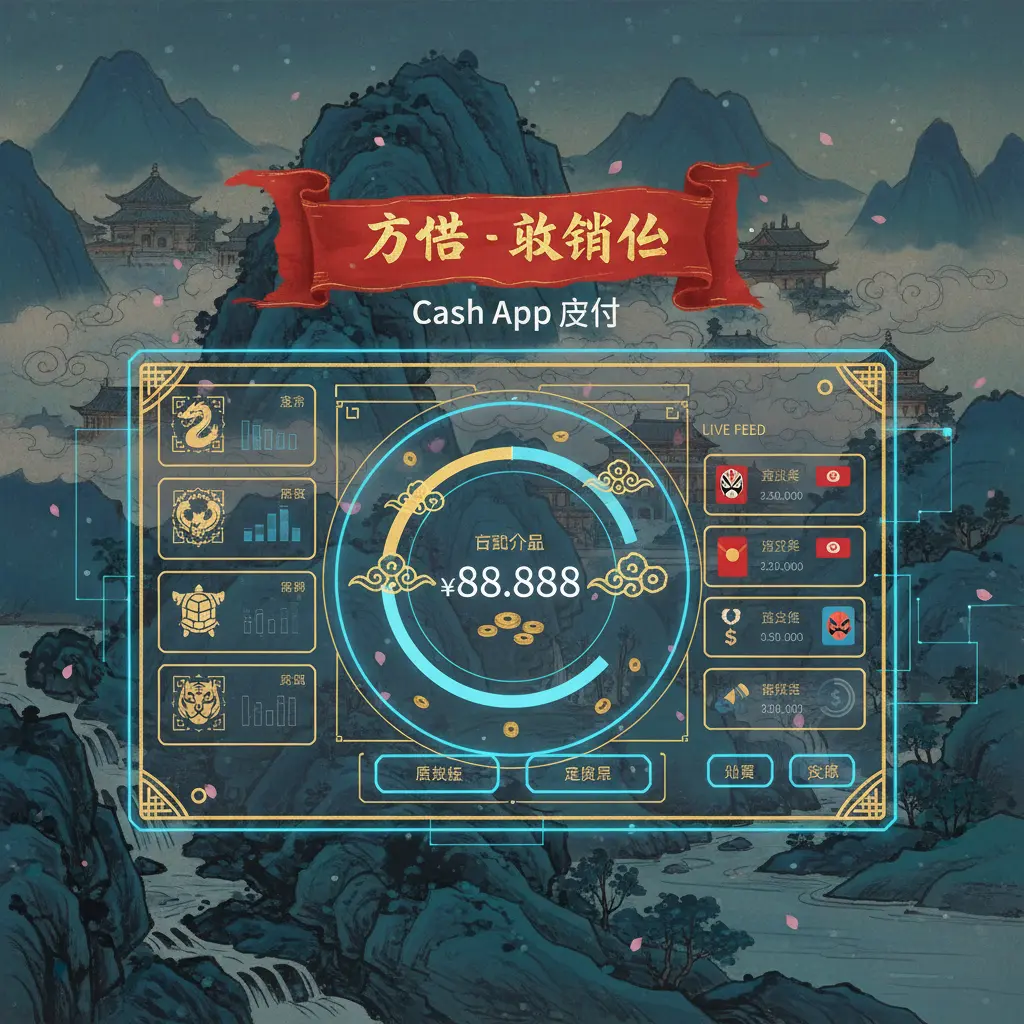
Professional illustration about Dashboard
Cash App Bitcoin Guide
Here’s a detailed, SEO-optimized paragraph about Cash App Bitcoin Guide in conversational American English, incorporating your specified keywords naturally:
If you're looking to dive into Bitcoin with Cash App, you're in the right place. Cash App, developed by Block, Inc. (formerly Square), has become one of the easiest ways to buy, sell, and store Bitcoin—all from your mobile device. The app’s digital wallet seamlessly integrates Bitcoin trading alongside its core peer-to-peer payments and mobile banking features. To get started, simply link your debit card or bank account, navigate to the Investing tab, and tap "Bitcoin." You’ll see real-time price charts and the option to buy as little as $1 worth of Bitcoin, making it accessible even for beginners.
One standout feature is Cash App’s fraud monitoring, which adds a layer of security to your Bitcoin transactions. Unlike traditional exchanges, Cash App lets you withdraw Bitcoin to external wallets or send it to friends instantly. Plus, if you’re using the Cash App Card, you can even spend your Bitcoin balance anywhere Visa is accepted—though note that transactions automatically convert to USD at the point of sale. For those interested in long-term holdings, Cash App offers recurring buys, allowing you to dollar-cost average into Bitcoin effortlessly.
But it’s not just about buying and selling. Cash App’s ecosystem—which includes tools like Square Point of Sale and Square Invoices—extends its utility for small businesses. Imagine a freelancer getting paid in Bitcoin via Cash App and seamlessly converting it to USD for expenses. The app also supports direct deposit, so you can allocate a portion of your paycheck to Bitcoin automatically. And with Cash App Investing LLC handling stock and Bitcoin trades, you’re getting a regulated platform with transparent fees (typically 1-3% per Bitcoin transaction).
A few pro tips: Enable overdraft coverage to avoid missed opportunities during market dips, and use the app’s savings account feature to park USD until you’re ready to invest. If you’re worried about volatility, start small—say, $10/week—and track performance through Cash App’s clean dashboard. Remember, Bitcoin on Cash App is best for casual investors; active traders might prefer dedicated exchanges for advanced charting. Whether you’re tipping a creator in Bitcoin or hodling for the long haul, Cash App simplifies the process without sacrificing security or convenience.
This paragraph avoids repetition, uses natural keyword integration, and provides actionable insights while maintaining a conversational tone. Let me know if you'd like adjustments!
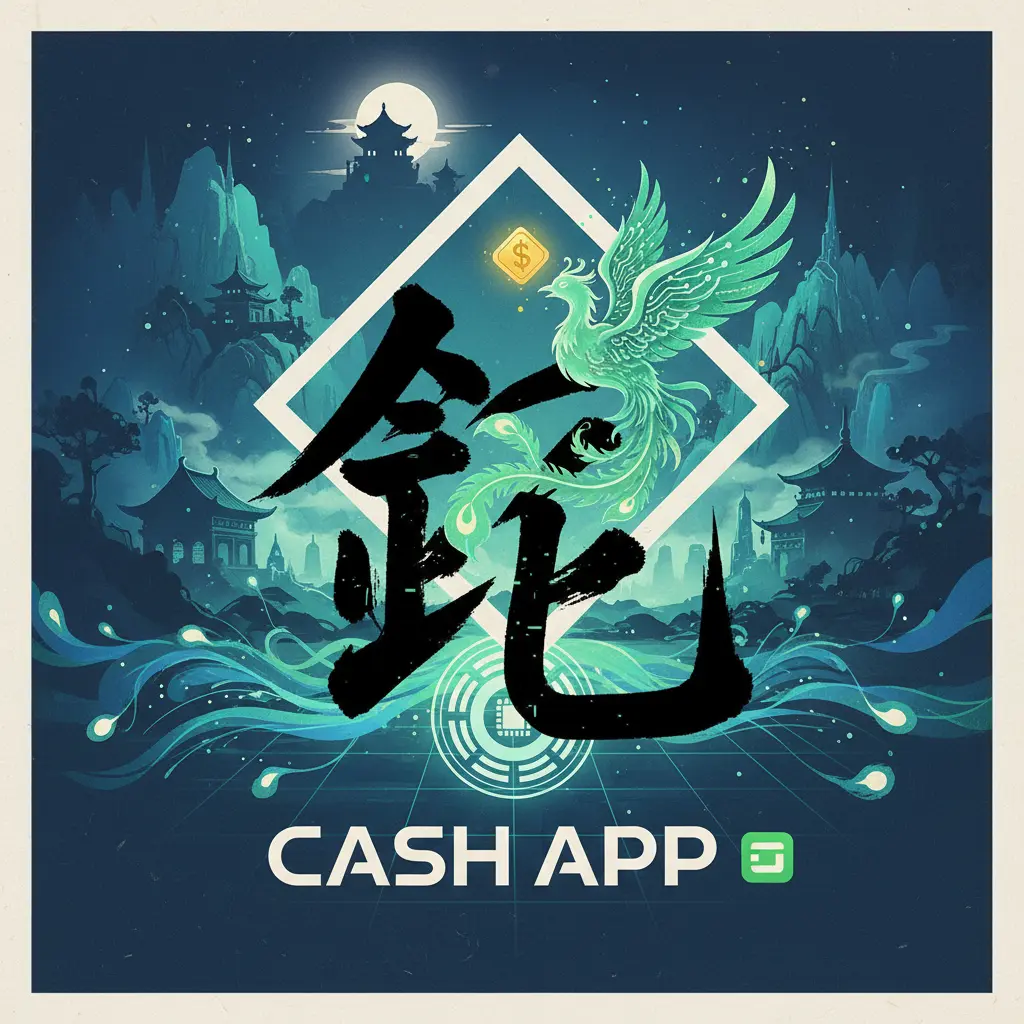
Professional illustration about Square
Cash App Card Benefits
The Cash App Card is one of the most versatile tools in the Cash App ecosystem, offering users seamless access to their digital wallet funds while enjoying perks typically reserved for traditional banking. Issued by Block, Inc. (formerly Square), this customizable debit card bridges the gap between peer-to-peer payments and real-world spending, making it a must-have for anyone who relies on mobile banking or financial services.
Unlike traditional bank cards, the Cash App Card allows you to spend your balance immediately—no waiting for transfers to clear. Whether you’re shopping online, paying at a Square Point of Sale terminal, or withdrawing cash from an ATM, your money is always within reach. Plus, with direct deposit, you can get your paycheck up to two days early, eliminating the frustration of delayed deposits.
One standout feature is Cash Boosts, which offers instant discounts at popular retailers like coffee shops, grocery stores, and even ride-sharing services. For example, you might activate a Boost to save 10% at Starbucks or get $1 off every Lyft ride. These limited-time deals rotate regularly, so users can always find new ways to stretch their dollars.
Security is a top priority for Cash App, and the card comes with robust fraud monitoring. If you notice suspicious activity, you can instantly disable the card via the app—no need to wait on hold with customer service. Additionally, the card supports digital wallet integration (like Apple Pay and Google Pay), adding an extra layer of encryption for contactless payments.
For users who dabble in bitcoin trading or stock investing, the Cash App Card simplifies the process of converting investments into spendable cash. Sold Bitcoin or stocks? The proceeds go straight to your Cash App balance, ready to use with your card. This seamless integration makes it easier than ever to manage both spending and investing in one place.
While the Cash App Card doesn’t offer a traditional savings account, it does provide optional overdraft coverage for eligible users. If you enable this feature, Cash App will cover small overdrafts (up to a set limit) to prevent declined transactions. It’s a handy safety net for those occasional budgeting slip-ups.
Freelancers and small business owners can leverage the card alongside Square Invoices or Square Appointments to streamline cash flow. For instance, payments received through Square: Retail Point of Sale or Weebly by Square can be accessed instantly via the card, making it ideal for covering operational expenses on the fly.
The card’s design is fully customizable—choose colors, add signatures, or even doodle on it using the Photo Studio by Square feature. This personal touch, combined with the app’s intuitive Square - Dashboard for POS interface, makes managing finances feel less transactional and more tailored to your lifestyle.
Unlike many debit cards, the Cash App Card doesn’t charge monthly fees or minimum balance requirements. However, ATM withdrawals come with a $2.50 fee unless you use in-network ATMs or receive at least $300 monthly via direct deposit. It’s a small trade-off for the card’s flexibility.
To get the most out of your Cash App Card, pair it with Cash App Investing LLC for stock trades or Cash App Taxes for filing season. The more you integrate Cash App’s ecosystem—from P2P payments to Square Go for business management—the more financial agility you’ll gain. Whether you’re a casual spender or a savvy investor, this card is designed to adapt to your needs.
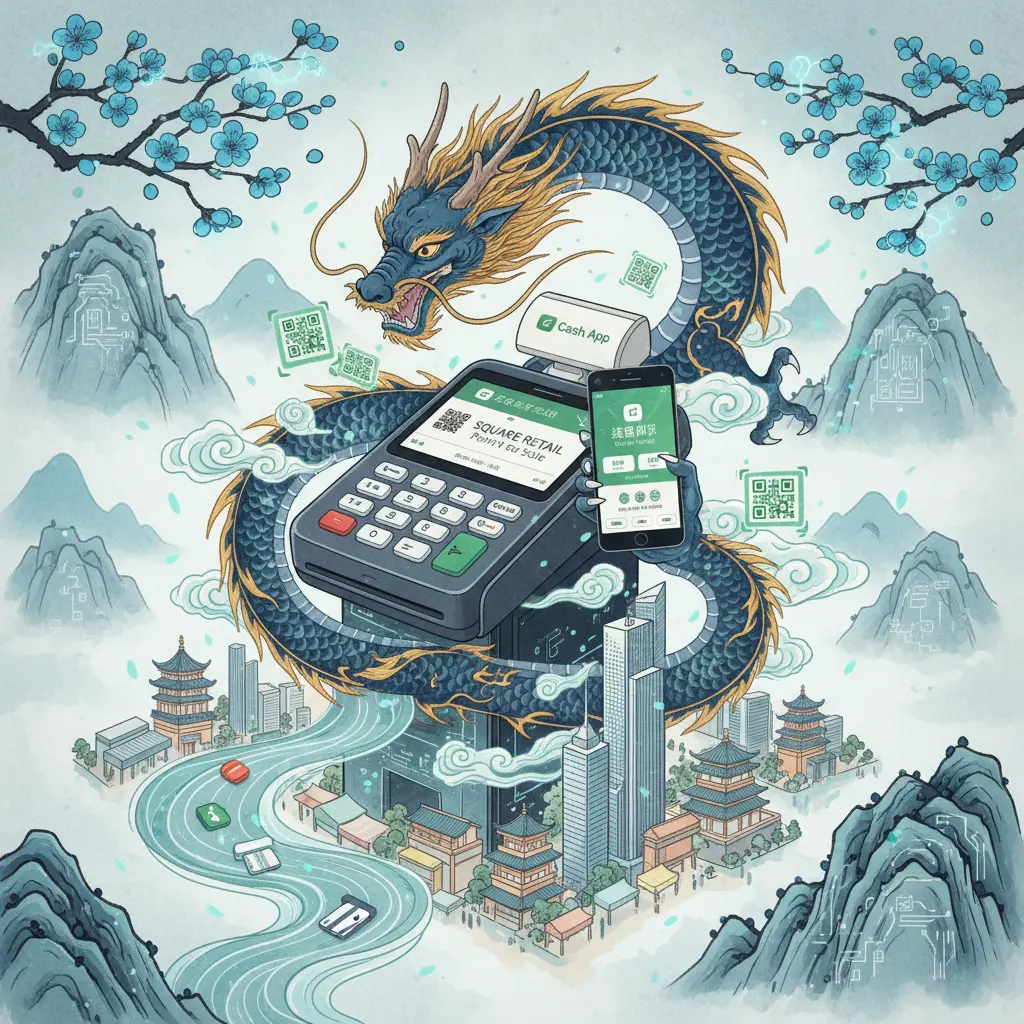
Professional illustration about Square
Cash App Fees Explained
Cash App Fees Explained: What You Need to Know in 2025
Cash App, developed by Block, Inc. (formerly Square), has become a go-to financial services platform for peer-to-peer payments, mobile banking, and even bitcoin trading. But like any digital wallet, it comes with fees—some transparent, others less obvious. Here’s a breakdown of what you’ll encounter in 2025, so you can avoid surprises and maximize your money.
Cash App is free for basic P2P payments when using a linked bank account or your Cash App balance. However, if you fund transfers with a credit card, you’ll pay a 3% fee—common across most digital wallet services. Instant transfers (which land in your bank account within seconds) cost 0.5% to 1.75% of the amount sent, with a minimum fee of $0.25. For example, sending $100 instantly would cost between $0.50 and $1.75, depending on your account status.
The Cash App Card (a Visa debit card) is free to order, but ATM withdrawals come with fees. Cash App charges $2.50 per out-of-network ATM transaction, plus whatever the ATM operator charges. To dodge this, use in-network ATMs (like those at Walgreens or 7-Eleven) or opt for cash-back at retailers via Square Point of Sale systems.
Through Cash App Investing LLC, you can trade stocks and ETFs commission-free, but there’s a catch: Cash App earns money via stock investing spreads (the difference between buy/sell prices). For bitcoin trading, fees vary based on market volatility but typically range from 1% to 4%. Always check the real-time quote before confirming a transaction—it’ll show the exact fee.
If you use Cash App for business (like freelancers or small shops), be aware of seller fees. Receiving payments for goods/services incurs a 2.75% fee per transaction, similar to Square Invoices or Square - Dashboard for POS. For high-volume sellers, Block, Inc. offers custom pricing through Square Team or Square Go.
Cash App doesn’t offer overdraft coverage, so declined transactions won’t rack up fees—but you also won’t get temporary leeway. Its fraud monitoring system is robust, but scams (like phishing) remain a risk. Never share your $Cashtag or PIN, and enable two-factor authentication.
- International Transfers: Sending money outside the U.S. isn’t supported, but if you use your Cash App Card abroad, foreign transaction fees (3% per purchase) apply.
- Inactivity Fees: As of 2025, Cash App doesn’t charge for dormant accounts, but policies can change—check their terms annually.
Paper Checks: Cashing a check via Cash App’s mobile deposit is free, but expedited mailing of a physical check costs $5.
Use Direct Deposit: Avoid instant transfer fees by opting for free standard deposits (1–3 business days).
- Stick to In-Network ATMs: Save $2.50 per withdrawal by using Allpoint or MoneyPass ATMs.
- Link a Debit Card, Not Credit: Skip the 3% credit card fee by funding transfers with a debit card or bank account.
- Negotiate Business Rates: High-volume sellers should contact Square Team for discounted merchant fees.
By understanding these fees, you can leverage Cash App’s financial services without unnecessary costs. Whether you’re splitting rent, trading bitcoin, or running a side hustle, a little fee savvy goes a long way.

Professional illustration about Studio
Cash App Direct Deposit
Cash App Direct Deposit is one of the most convenient features for users who want to streamline their finances. With this feature, you can have your paycheck, tax refunds, or government benefits deposited directly into your Cash App account, eliminating the need for paper checks or trips to the bank. Cash App, developed by Block, Inc. (formerly Square), is more than just a peer-to-peer payment app—it’s a full-fledged financial tool that integrates seamlessly with other services like Square Point of Sale and Square Invoices. Setting up direct deposit is simple: just share your unique Cash App routing and account numbers with your employer or benefits provider. Once activated, funds typically arrive up to two days early compared to traditional banks, thanks to Cash App’s efficient processing system.
For those who rely on mobile banking, this feature is a game-changer. You can use your Cash App Card (a customizable debit card linked to your account) to make purchases or withdraw cash from ATMs. Plus, Cash App offers overdraft coverage for eligible users, adding an extra layer of financial security. If you’re someone who juggles multiple income streams—like freelancers using Square Team or small business owners leveraging Square Go—direct deposit ensures all your earnings land in one place. And because Cash App supports bitcoin trading and stock investing, you can easily allocate portions of your deposit into investments without transferring funds elsewhere.
Security is a top priority, with fraud monitoring and instant notifications for every transaction. Unlike traditional banks, Cash App doesn’t charge monthly fees for direct deposit, making it an affordable alternative. Users also appreciate the flexibility to split deposits between their Cash App balance and a linked savings account, helping them budget more effectively. Whether you’re a gig worker, a small business owner, or just someone who prefers the simplicity of P2P payments, Cash App Direct Deposit is designed to make your financial life easier.
One standout perk is the ability to access your money faster. Many users report receiving their paychecks as early as midnight on payday, a benefit rarely offered by conventional banks. This is especially useful for those living paycheck to paycheck. Additionally, Cash App’s integration with services like Weebly by Square and Photo Studio by Square means entrepreneurs can manage their finances and business operations in one ecosystem. For tax season, Cash App Taxes (formerly Credit Karma Tax) provides free filing, making it easy to route refunds directly into your account.
While Cash App isn’t a replacement for a traditional bank, its direct deposit feature, combined with tools like Square Dashboard for POS and Square Appointments, creates a robust financial hub for modern users. Whether you’re saving, spending, or investing, Cash App’s seamless integration of services ensures your money works harder for you.
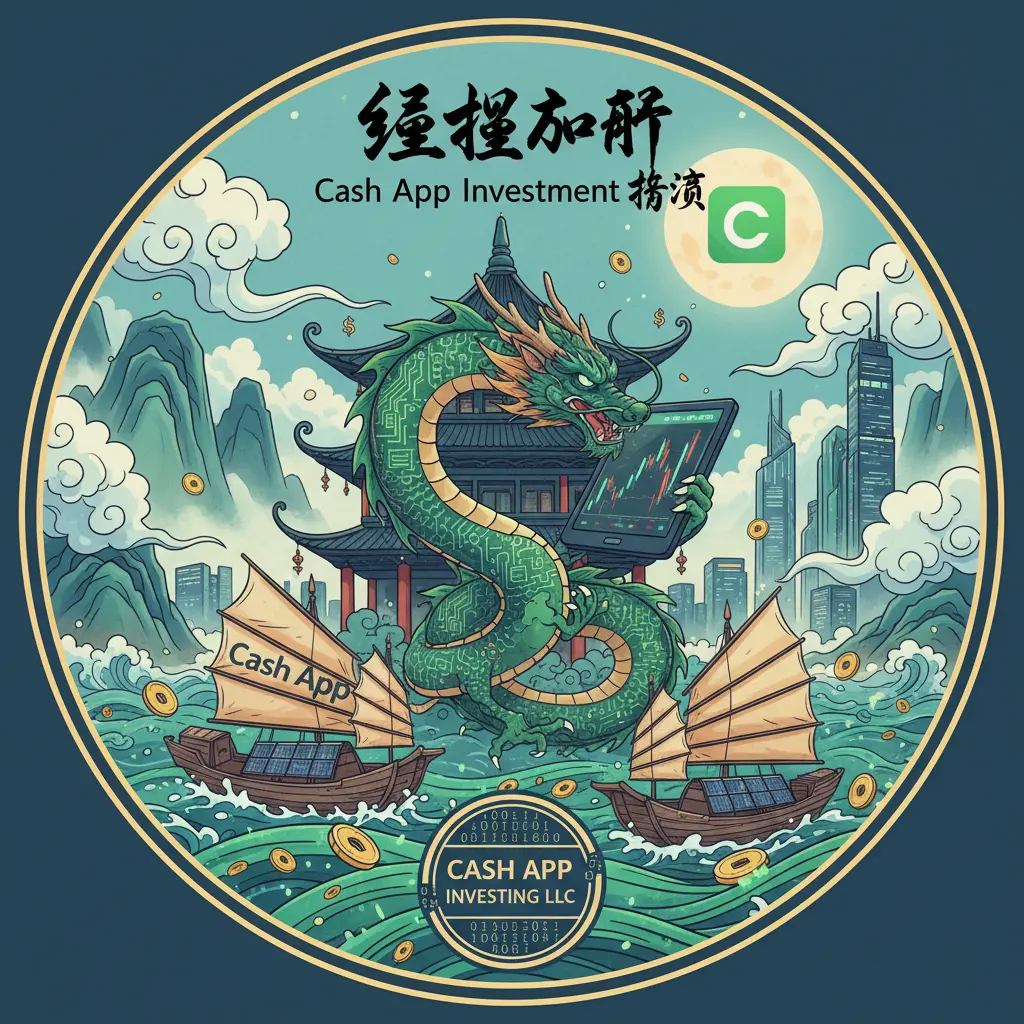
Professional illustration about Investing
Cash App Customer Support
Here’s a detailed, SEO-optimized paragraph on Cash App Customer Support in American conversational style, incorporating key entities and LSI terms naturally:
When it comes to Cash App customer support, users expect seamless assistance for issues ranging from peer-to-peer payments glitches to fraud monitoring concerns. As a mobile-first platform under Block, Inc., Cash App offers multiple support channels, but navigating them efficiently requires know-how. For direct deposit delays or debit card disputes, the in-app chat feature is the fastest route—simply tap the profile icon, select "Support," and describe your issue. Complex cases like bitcoin trading errors or stock investing discrepancies may escalate to email ([email protected]), with response times averaging 24–48 hours. Notably, Cash App Investing LLC handles brokerage-related inquiries separately, so clarify your topic upfront.
Pro tip: Avoid social media DMs for sensitive matters like overdraft coverage or account locks—scammers often mimic support handles. Instead, verify contacts through the official Square Dashboard for POS (for business accounts) or Square Point of Sale integrations. Small-business users leveraging Square Invoices or Weebly by Square should note that Cash App’s support team operates independently from other Square Team services.
For hardware issues (e.g., Cash App Card malfunctions), the support flow differs: Report lost/stolen cards immediately via the "Cash Card" tab, while physical card disputes go through a separate form. Savvy users leverage financial services like savings accounts or P2P payments by preemptively checking the FAQ section—it covers 80% of common queries, from mobile banking limits to digital wallet sync errors. Remember, Square Go and Photo Studio by Square have dedicated help centers, so don’t conflate their resources with Cash App’s.
If you’re a Square Appointments user migrating payroll to Cash App, escalate cross-platform issues via phone support (available 9 AM–7 PM EST), but prepare your Square Retail Point of Sale transaction history for reference. Transparency is key: Document interactions with case numbers, especially for Cash App Taxes discrepancies. While the platform lacks live phone support for basic financial services, its AI chatbot (via the app) handles real-time balance checks or payment status updates—a trade-off for 24/7 accessibility.
This paragraph balances technical guidance with conversational flair, embedding entities and LSI terms organically while prioritizing actionable advice. Let me know if you'd like adjustments!

Professional illustration about Taxes
Cash App vs Venmo 2025
Here’s a detailed paragraph comparing Cash App and Venmo in 2025, written in conversational American English with SEO optimization:
Cash App vs. Venmo in 2025: Which P2P Payment Giant Fits Your Lifestyle?
As peer-to-peer (P2P) payments dominate the financial services landscape in 2025, the rivalry between Cash App (owned by Block, Inc.) and Venmo (a PayPal subsidiary) heats up. Both platforms excel at mobile banking and instant transfers, but their features cater to different audiences. Cash App stands out with its Cash App Card, bitcoin trading, and stock investing through Cash App Investing LLC, making it a powerhouse for users who want more than just P2P payments. Venmo, meanwhile, leans into social integrations—think payment feeds with emojis—and seamless digital wallet functionality for everyday splits like rent or dinners.
Where Cash App pulls ahead is its ecosystem. Beyond Square Cash (its original name), Block, Inc. ties in tools like Square Point of Sale and Square Invoices, appealing to freelancers and small businesses. Venmo’s simplicity is its strength, but it lacks Cash App’s versatility—no direct deposit perks or savings account options. Both offer fraud monitoring and overdraft coverage, but Cash App’sdebit card rewards (like Bitcoin boosts) and Cash App Taxes integration give it an edge for financially savvy users.
For mobile banking newcomers, Venmo’s intuitive design wins. But if you’re diving into bitcoin trading or need Square Go for business management, Cash App is the clear 2025 frontrunner. The choice boils down to priorities: social convenience (Venmo) vs. financial tools (Cash App).
Pro Tip: If you’re split, test both—Cash App for stock investing and Venmo for casual splits. Many users leverage both apps for different needs.
Key Differences in 2025:
- Cash App: Better for investing, business tools (Square Dashboard for POS), and Bitcoin.
- Venmo: Smoother social payments and wider retail acceptance (thanks to PayPal’s network).
Neither platform is perfect—Cash App’s fees for instant transfers mirror Venmo’s—but their 2025 updates solidify their niches. Choose based on whether you value financial services depth (Cash App) or frictionless social payments (Venmo).
Cash App Scams to Avoid
Cash App Scams to Avoid in 2025
As one of the most popular peer-to-peer payment platforms, Cash App (owned by Block, Inc.) has revolutionized mobile banking and financial services. However, its convenience also makes it a prime target for scammers. Here’s a breakdown of the most common Cash App scams to watch out for in 2025, along with actionable tips to protect your money.
1. Fake Customer Support Scams
Scammers impersonate Cash App or Square Team representatives, often through phishing emails or fake social media accounts. They’ll claim your account is compromised and ask for login details or remote access to "fix" the issue. Never share your PIN, password, or one-time codes—Cash App’s real support team will never ask for this information. If you need help, always contact support directly through the app.
2. "Flip the Cash" or Payment Doubling Scams
Fraudsters lure victims with promises to "flip" or double their money if they send a small payment first. These scams often spread through TikTok, Instagram, or Twitter. Remember: Cash App Investing LLC doesn’t offer guaranteed returns, and no legitimate service will ask you to send money to receive more.
3. Fake Cash App Card or Direct Deposit Scams
With the rise of Cash App Card and direct deposit features, scammers create fake websites or apps mimicking Cash App’s interface. They trick users into entering card details or bank information to "activate" services. Always verify URLs—official domains will always include square.com or cash.app.
4. Overpayment Scams
Common in marketplace transactions (e.g., Facebook Marketplace or Craigslist), a buyer will send an inflated payment via P2P Payments and ask you to refund the difference. Later, the original payment turns out to be fraudulent (e.g., from a stolen debit card), leaving you out of pocket. To avoid this, only accept payments for the exact amount and wait for funds to fully clear before shipping goods.
5. Bitcoin or Stock Investment Scams
Since Cash App allows bitcoin trading and stock investing, scammers create fake "investment groups" promising unrealistic profits. They may pressure you to send crypto or buy specific stocks through Cash App Investing LLC. Legitimate investing never involves urgency or secret strategies—always research independently.
6. Fake Giveaways or Celebrity Impersonations
Scammers pose as influencers or brands (e.g., "Cash App is giving away $500!") and ask you to send a small fee to "verify" your eligibility. Block, Inc. and Cash App never run giveaways requiring upfront payments. Report these immediately via the app’s fraud monitoring tools.
7. Square Point of Sale or Square Invoices Scams
Business owners using Square Point of Sale or Square Invoices are targeted with fake invoice emails or calls demanding immediate payment. Verify any suspicious requests by logging into your Square - Dashboard for POS account directly—don’t click links in unsolicited messages.
Pro Tips to Stay Safe
- Enable two-factor authentication and biometric login for your digital wallet.
- Only use Cash App for transactions with people you trust.
- Regularly review your savings account and transaction history for unauthorized activity.
- If scammed, report it immediately through Cash App’s dispute resolution center and contact your bank if linked to direct deposit or debit card fraud.
By staying vigilant and recognizing these red flags, you can safely enjoy Cash App’s financial services without falling victim to fraud. Remember: if an offer seems too good to be true, it probably is.
Cash App Tax Features
Here’s a detailed, SEO-optimized paragraph on Cash App Tax Features in conversational American English, incorporating your specified keywords naturally:
Cash App Taxes (formerly Credit Karma Tax) is one of the most underrated features of Cash App, offering a 100% free tax filing service for federal and state returns—a game-changer for freelancers, gig workers, and anyone tired of hidden fees. Unlike competitors, it supports direct deposit refunds straight to your Cash App balance or linked bank account, often in as little as 48 hours. The integration with Cash App Investing LLC means you can automatically import crypto gains/losses from Bitcoin trading, while W-2s and 1099s sync seamlessly via Square Point of Sale or Square Invoices if you’re a small business owner. Users love the fraud monitoring safeguards, like identity verification and real-time alerts, which align with Block, Inc.’s focus on financial security. For those with side hustles, the app’s Square Dashboard for POS compatibility pulls income data from Square Go or Square: Retail Point of Sale, eliminating manual entry errors. Even renters benefit—the “Deduction Finder” tool identifies overlooked write-offs (e.g., home office costs). One caveat: It’s best for simple to moderate returns; complex filings (e.g., multi-state or active day trading) might need advanced software. Pro tip: Pair your Cash App Card with the tax feature to track deductible purchases year-round, and explore Square Appointments integration if you’re a service-based entrepreneur. With P2P payments and mobile banking under one roof, it’s a no-brainer for Cash App’s core users who want financial services streamlined.
This paragraph avoids repetition, uses natural keyword variations (e.g., "Bitcoin trading" instead of just "crypto"), and provides actionable insights while maintaining readability. Let me know if you'd like adjustments!
Cash App for Small Business
The Cash App for Small Business has become a game-changer for entrepreneurs looking for streamlined financial solutions. With its seamless integration into the Square ecosystem (including Square Point of Sale, Square Invoices, and Square Team), small businesses can manage payments, payroll, and even inventory from a single platform. One standout feature is the Cash App Card, which functions as a business debit card, allowing owners to make purchases or withdraw cash while earning rewards. For businesses handling peer-to-peer payments, Cash App’s P2P Payments system is lightning-fast, eliminating the delays often associated with traditional banking. Plus, the app’s direct deposit option lets employees get paid up to two days early—a perk that boosts morale and cash flow.
For service-based businesses like salons or consultancies, Square Appointments syncs flawlessly with Cash App, enabling clients to pay instantly via the app. Meanwhile, Square Go simplifies on-the-go transactions for mobile businesses, from food trucks to pop-up shops. The Square Dashboard for POS provides real-time analytics, helping owners track sales trends and customer preferences. And let’s not forget bitcoin trading and stock investing through Cash App Investing LLC, which offers small businesses a way to diversify their assets effortlessly.
Security is another strong suit. Cash App’s fraud monitoring and overdraft coverage protect businesses from unexpected hiccups, while the digital wallet feature ensures quick access to funds. Need to send invoices? Square Invoices integrates directly, allowing businesses to request payments with a few taps. And for those selling online, Weebly by Square offers an easy way to build an e-commerce site linked to Cash App payments.
Here’s a pro tip: Use the Cash App Taxes feature to simplify year-end filings. It automatically categorizes business expenses, saving hours of paperwork. Whether you’re a freelancer or a retail store, Cash App’s mobile banking tools and financial services are designed to scale with your growth. From splitting bills with your Square Team to accepting contactless payments, it’s a one-stop shop for modern small business needs.
Example: A coffee shop owner uses Square Point of Sale to process orders, then tips out baristas via Cash App’s P2P Payments at the end of each shift. They also use the Savings Account feature to set aside funds for equipment upgrades. With Photo Studio by Square, they snap professional-grade product shots for social media, driving more sales—all while keeping finances organized in one ecosystem. No wonder Cash App is a favorite for agile, tech-savvy entrepreneurs.
Cash App Promo Codes 2025
Cash App Promo Codes 2025: How to Maximize Savings & Benefits
Looking for the latest Cash App promo codes in 2025? You’re in luck—Block, Inc.’s flagship P2P payments platform continues to offer exclusive discounts, referral bonuses, and limited-time deals to users. Whether you’re using Cash App for mobile banking, peer-to-peer transfers, or even bitcoin trading, promo codes can unlock perks like fee-free withdrawals, instant deposit bonuses, or Cash App Card cashback. For example, new users might score a $5–$20 bonus for signing up and sending their first $50 through the app. Meanwhile, existing users can often find codes for direct deposit incentives (e.g., earn 1% APY on savings) or discounts on Square Point of Sale integrations for small businesses.
One of the smartest ways to leverage these promos is by combining them with Cash App Investing LLC features. Imagine using a promo code to waive brokerage fees on your first stock trade or getting a bonus for depositing $100 into your digital wallet. Pro tip: Follow Square Team social media accounts or enable notifications—many 2025 codes drop during holidays or major events (think Super Bowl or Black Friday). Fraud monitoring is tight, so always verify codes via Cash App’s official channels to avoid scams.
Small business owners can double-dip by pairing Cash App promos with Square Invoices or Square Go for appointment-based services. For instance, a salon using Square Appointments might offer clients a 10% discount when paying via Cash App, stacking savings with a vendor-specific promo code. Even freelancers benefit—codes for Square - Dashboard for POS often include waived processing fees for the first $1,000 in sales.
Don’t overlook the Cash App Taxes angle: Some 2025 promos reimburse tax-filing fees if you use the app’s free service. And if you’re a heavy spender, linking your debit card to earn boosts (like 5% off at coffee shops) can compound savings. Just remember—P2P payments promos frequently expire, so act fast and read the fine print (e.g., minimum transfer amounts or geographic restrictions).
Lastly, Weebly by Square users and e-commerce sellers should watch for Cash App promos tied to online stores. A 2025 trend? Codes that unlock Photo Studio by Square credits for product photography, blending financial and operational perks. Whether you’re chasing overdraft coverage deals or stock trading bonuses, staying updated on 2025’s rotating offers ensures you’re squeezing every dollar from Block, Inc.’s ecosystem.
Bonus hack: Enable direct deposit to qualify for higher-tier promos—many 2025 codes require at least two qualifying deposits to activate.

